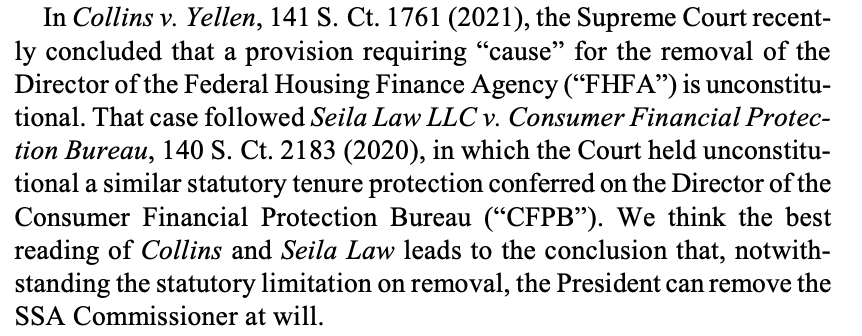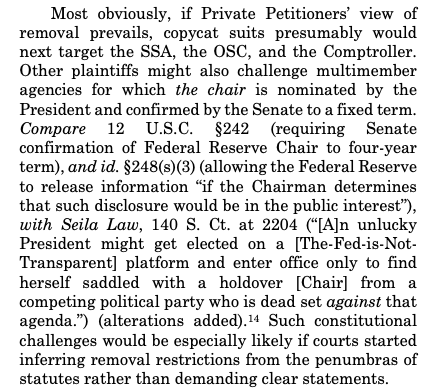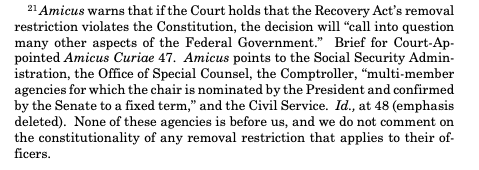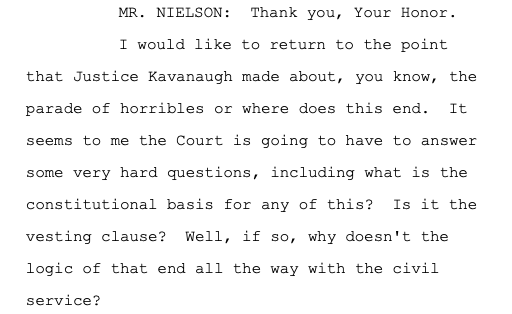The Logic of Collins v. Yellen
Today, President Biden fired the head of the Social Security Administration, despite the fact that Congress has declared that “[a]n individual serving in the office of Commissioner may be removed from office only pursuant to a finding by the President of neglect of duty or malfeasance in office.” The Office of Legal Counsel justified this result based on Collins v. Yellen:

As regular readers know, I was appointed by the Supreme Court to brief and argue Collins.
OLC’s legal analysis today should not come as a surprise (even if the President’s decision to use his removal authority may be surprising). In our brief, Chris Walker and I included this argument:

In response, the Supreme Court offered this footnote:

The Court’s failure to offer a distinguishing principle is notable. If the limiting principle is anyone in the Executive Branch — based on the fact that “[t]he executive Power shall be vested in a President of the United States of America” — then the logic of the analysis goes quite far. As I explained at oral argument:

OLC speculates that perhaps “certain agencies, including (and perhaps especially) some that conduct adjudications, may constitutionally be led by officials protected from at-will removal by the President.” OLC also observes that its opinion does not “speak to the constitutionality of existing or hypothetical tenure protections for any other agency heads, including multi-member commissions, that do not share the specific combination of features identified here.”
Perhaps such lines will hold. After all, “a precedent is not always expanded to the limit of its logic.” But I’ve yet to see a limit to the Court’s logic that doesn’t end with the invalidation of lots of removal restrictions.
Folks obviously disagree about the unitary executive (for what it is worth, Chris and I have a new idea about that big question that we’re still thinking through and writing up). That’s a question for another day. My point today is only to note just how far the Court’s logic may go. We’ll see what happens next.



